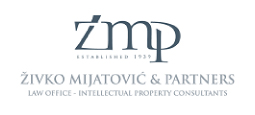Many products on the market today are protected by geographical indications (GIs). GIs serve as a mark of quality, assuring consumers of the unique characteristics, taste, and origin of a product. This is especially important for food and beverages, where specific taste profiles often drive consumer loyalty. For example, Parmigiano Reggiano is celebrated for its complex, layered flavour with nutty notes – qualities that keep consumers coming back.
The Taste Test: When Is GI Use Justified?
This consumer behaviour is of interest to other producers, especially those who create processed foods that include GI-protected ingredients. These producers may hope to benefit not only from the distinctive taste of the GI ingredient but also from its reputation, which subtly influence consumer perceptions. Consumers may associate the familiar GI name with quality and expect a specific taste, even when the product is not made by an authorized GI producer. While most consumers will not question whether the GI use is permitted, IP professionals and enthusiasts are more likely to ask whether such use is lawful and whether it risks diluting the GI’s reputation.
The Champagne Sorbet Case: A Defining Moment
CJEU addressed this issue in the Champagner Sorbet case. In 2012, Aldi Süd began selling a frozen dessert labeled “Champagner Sorbet,” which contained 12% GI-protected Champagne from Veuve Monsigny.
The Comité Interprofessionnel du Vin de Champagne (CIVC) sued Aldi and its supplier, arguing that the product unfairly capitalized on the Champagne GI and that 12% content was insufficient to justify the name.
In 2017, Advocate General issued an Opinion, advising the court to assess whether there was a legitimate interest in using the PDO “Champagne.” The key test, he proposed, was whether a reasonably well-informed, observant, and circumspect consumer would believe there was a genuine link between the GI-protected ingredient, the product’s labelling and packaging, and the use of the name “Champagne.”
The CJEU agreed with this proposition. Ultimately, the court ruled that the sorbet did not have a dominant Champagne flavor, instead tasting primarily of pear and thus unfairly exploited the Champagne name.
EU GI Regulation – New Rules On Use and Labelling
The issue of use and labelling is now addressed in the latest EU GI regulation. Regulation (EU) 2024/1143, of 11 April 2024 now sets clear conditions for using GI-protected products as ingredients in processed foods.
Under Article 27, third parties may use a GI in the name, labelling, or advertising of a processed product only if these three cumulative conditions are met:
- The product contains no comparable substitute for the GI ingredient;
- The GI is used in a sufficient quantity to impart an essential characteristic to the final product;
- The percentage of the GI ingredient is clearly indicated on the label.
In addition, producer of prepacked foods must notify GI holder in writing, providing evidence that the conditions have been fulfilled. GI holder must acknowledge receipt within four months.
Although the regulation does not specify whether GI holders can prohibit such use, this notification system strengthens their ability to monitor and enforce the proper use of geographical indications in the market.
What This Means for Producers and GI Holders
The Champagner Sorbet case illustrates the delicate balance between protecting the reputation of GI-protected products and allowing their use in processed goods. However, the new regulation provides greater legal certainty, but its practical enforcement remains to be seen. Whether it will truly safeguard the value and integrity of geographical indications in a rapidly evolved food market will ultimately depend on how national authorities, GI holders, and courts apply these standards in real-life situations.
This text is for informational purposes only and should not be considered as legal advice. Should you require any additional information, feel free to contact us.
By Suzana Doncic Stanimirovic, Of Counsel, ZMP


